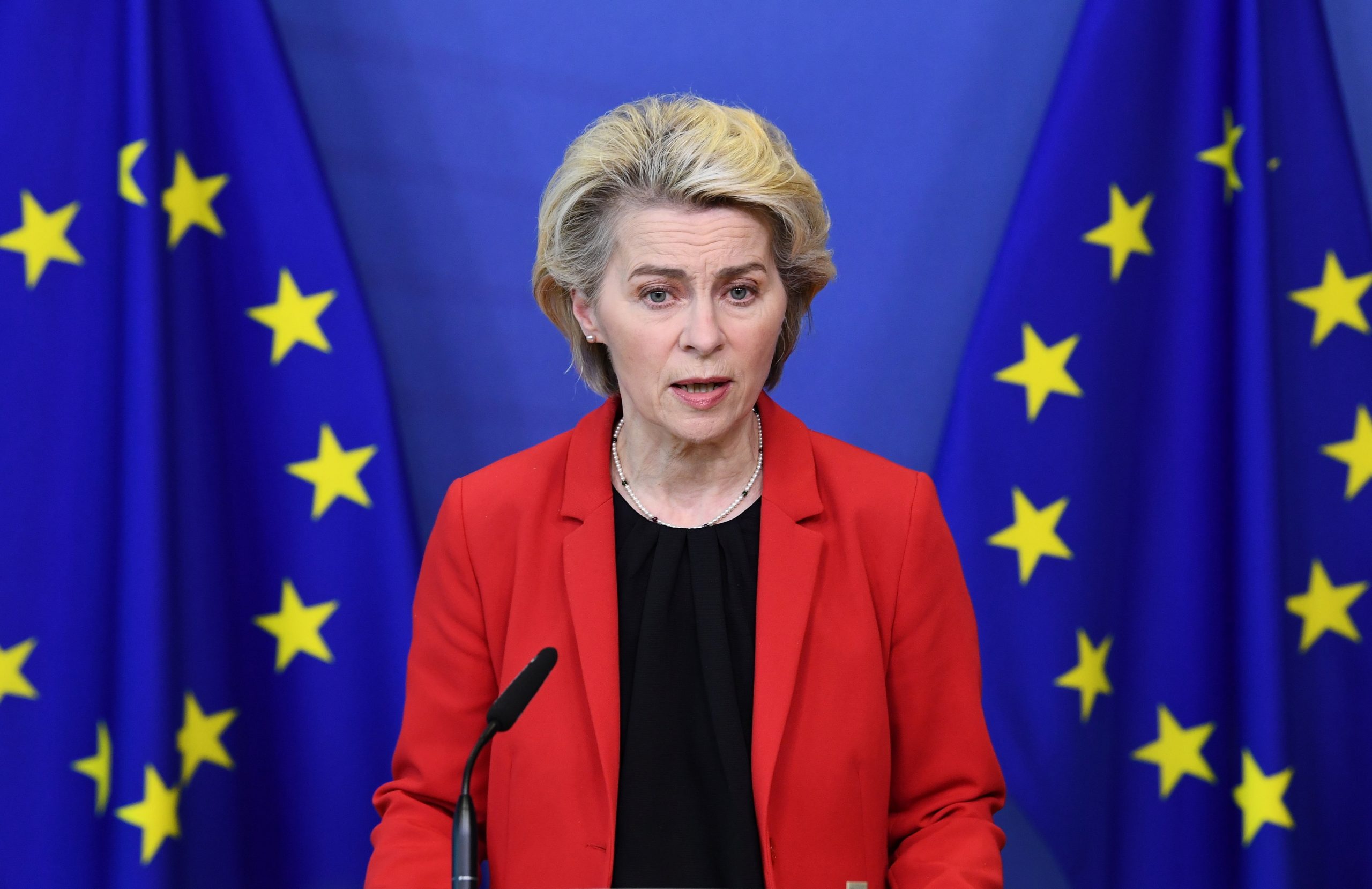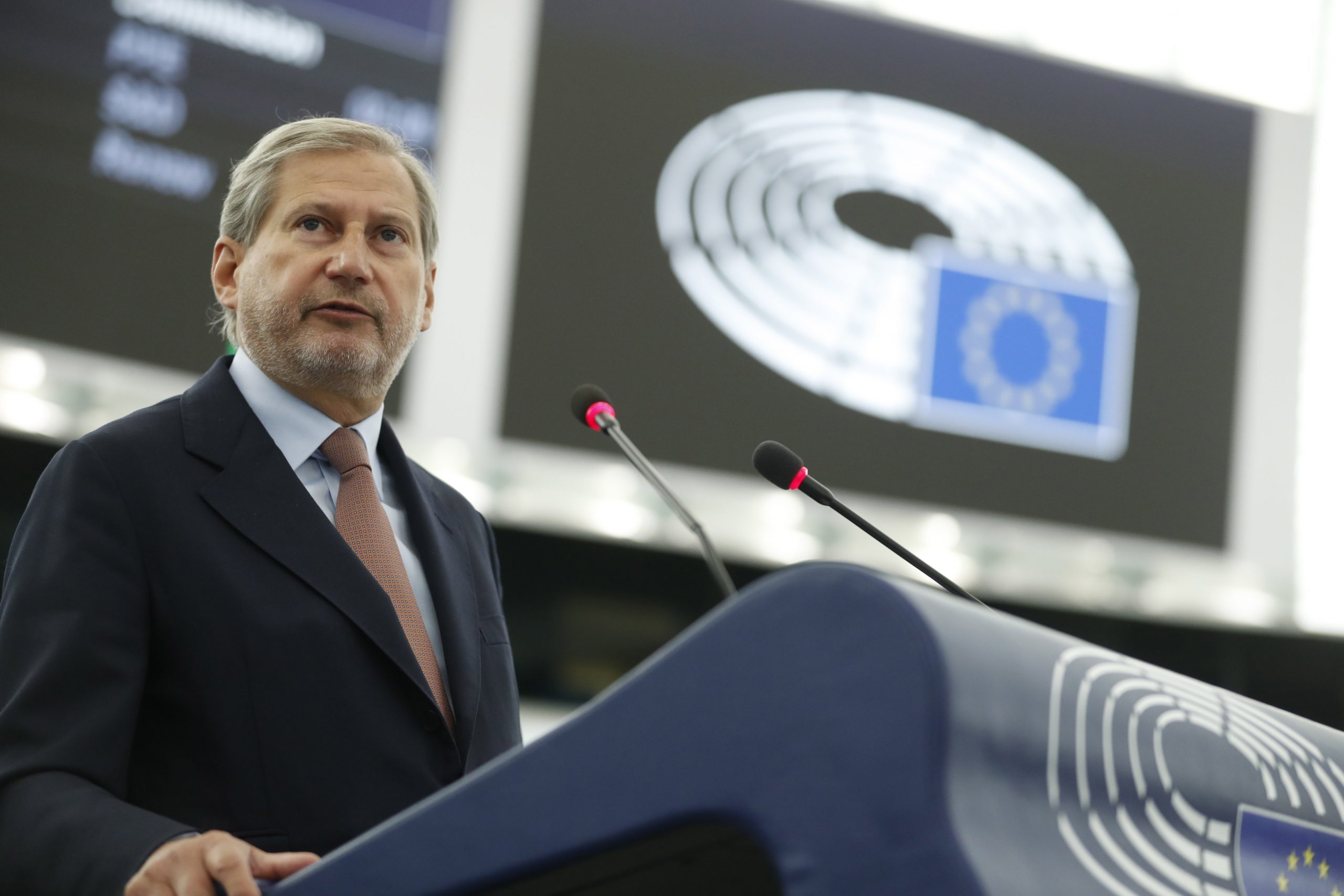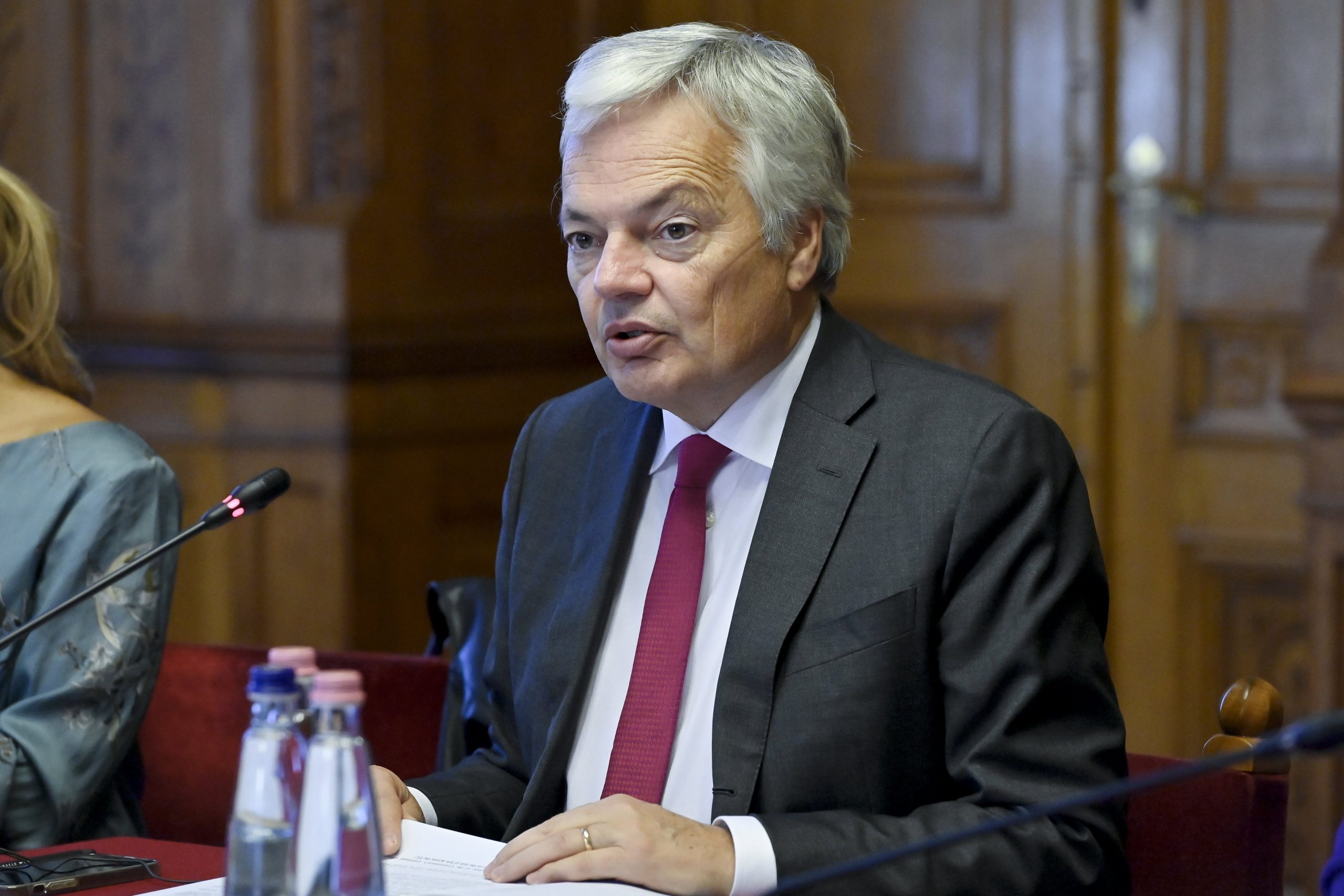
The European Commission has formally notified Hungary that they are activating the mechanism in the European Union budget, which links EU funding to the rule of law, against the country, EC President Ursula von der Leyen said on Tuesday. The country now faces the threat of EU funds being cut, among other consequences. Hungary’s Prime Minister Viktor Orbán won the parliamentary election on Sunday. With 53 percent of the vote, he secured a two-thirds majority in parliament for the fourth time in a row. The announcement came quickly after.
This article was originally published on our sister-site, Ungarn Heute.
Hungary is the first country to face proceedings for possible violations of the rule of law, the consequence of which could even be the reduction of EU funds. This was announced by EU Commission President Ursula von der Leyen in the Strasbourg European Parliament. The EU Commission has already informed the Hungarian authorities of this.
According to the Commission, they gave Hungary the opportunity to answer their questions on the rule of law. Now they have examined Hungary’s answers “and our conclusion is we have to move on [to] the next step,” the president said, in justification of the decision.
The Commission has already stated that in an administrative letter to the Orbán government last year, they raised questions and objections primarily about public procurement (or corruption cases involving EU funds), and the independent functioning of judicial authorities such as the prosecutor’s office. The Commission has already blocked certain funds from the EU budget for Poland and Hungary.
Related article
CJEU Ruling on Rule of Law Fund Cuts: EC Satisfied, EP Impatient, Fidesz Critical
"The European Court of Justice confirms the validity of the general conditionality Regulation. [...] The Court upholds the legality of this important tool that enables us to protect better the EU budget and the financial interests of the Union against breaches of the principles of the rule of law," wrote Commission President Ursula von der Leyen.Continue reading
The ruling of the European Court of Justice rejecting actions brought against the rule of law conditionality by Hungary and Poland, “fully confirmed the approach followed by the commission,” Von der Leyen said.
With Hungary, we have been very clear, the problem is corruption,”
said von der Leyen.
Background
Still, in December 2020, the European Council of Heads of State and Government of the European Union confirmed the agreement reached at the EU summit in July on the next seven-year budget of the European Union, and the fund to deal with the consequences of the coronavirus epidemic.
Part of the package also included making the EU budget and the use of funds subject to proper scrutiny, including a set of rule-of-law criteria for all 27 member states. A clause was added to the regulation stating that the mechanism for monitoring EU funds would only be triggered if a member state’s actions harmed the EU’s financial interests. As a first step in the application of the mechanism, the European Commission may propose the opening of a conditionality procedure if it finds that a member state is committing an infringement, or that there is a persistent and ongoing violation of the rule of law in that country.
Related article
EC Commissioner: "We will launch rule of law mechanism against Hungary"
Commissioner for Budget and Administration, Johannes Hahn, has announced that he will "take action with Hungary and set the mechanism in motion - because of suspicions of corruption and problems with public procurement."Continue reading
Although the rule of law mechanism has never been used in the EU, it essentially provides the ability to withdraw funds from a member state based on poor democratic conditions.
Hungary and Poland then challenged the legislation applying the mechanism before the Court of Justice of the European Union, but lost the case in February this year. In a blog post in late January, Prime Minister Viktor Orbán wrote that the ECJ would make a “political decision” and opt for a “federal Europe” rather than the will of the member states.
What happens next?
The introduction of the mechanism does not mean that from now on no more money will flow to Hungary. A long dialogue between Hungary and the EU, which could last months, will now begin, and the Commission will have to determine where and to what extent the EU’s fundamental values and the budget are being violated, and then impose a sanction.
Finally, the members of the European Council will have to vote on it. Even Poland will not be able to defend Hungary here, as a qualified majority is required to adopt the mechanism.
For Hungary to actually have EU funds cut, the final step still requires the approval of at least 15 of the EU states with 65 percent of the EU population. Before that, Budapest has several opportunities to respond to the accusations.
Related article
Commissioner Reynders: EU Will Not Sanction Hungary before Elections
Yet Reynders believes there are more problems with Hungary than with Poland, which has already received financial penalties.Continue reading
Sources: MTI, Tagesschau
Featured photo by John Thys/EPA/Pool/AFP/MTI



